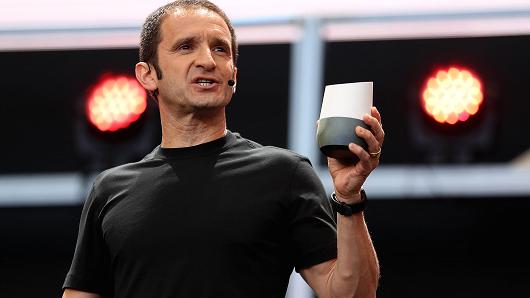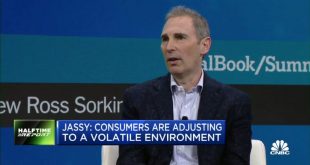
Getty Images
Google Vice President of Product Management Mario Queiroz shows the new Google Home during Google I/O 2016 at Shoreline Amphitheatre on May 19, 2016 in Mountain View, California.
Citibank recently announced an integration with Apple’s Siri, which allows customers to use their voice to navigate through their account. Alice Milligan, Citi’s chief digital client experience officer, said on the release of the bank’s second annual mobile banking study that “We think that’s the way people are going to interact; it’s the next generation of navigation. And it helps eliminate things that are not easy to find and have therefore been a friction point.”
J.P. Morgan Chase and Marriott Hotels are just two other big firms that have added voice technology to various parts of their customer interaction. The feeling among many experts is that people do want these vast improvements in machine and computer interaction, but that they would always like to know they are interacting with a computer.
The extension of voice technology to advertising is of chief concern among critics. Google has long committed to complying with data regulation and research has shown the recent implementation of the General Data Protection Regulation (GDPR) in Europe has actually helped Google’s advertising business. Google says it will continue to enhance transparency on data use for users and has updated its account creation to allow users more options on data use.
Cahill outlined new scenarios for advertising that included brands using your profile to figure out which media commentator you trust and serving an advertisement in their particular voice.
“A profile that is created from the things that you say, that knows the brands you interact with and in what context, can be extremely dangerous — especially if you can’t tell the difference between a sponsored message and an authentic endorsement.” he told CNBC in an email.
Analysis firm Juniper Research shows smart speakers will be installed in 55 percent of U.S. households within the next four years, and that total advertising spend on voice will reach $19 billion in the same period. The fast developments have led experts, consumers and lawmakers alike to one conclusion — we need to talk about voice.
 EU News Digest Latest News & Updates
EU News Digest Latest News & Updates



